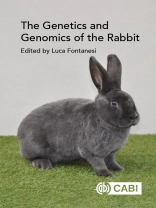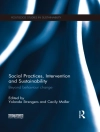Rabbits have many uses – as well as being cherished pets, they are bred for their meat and fur, and as laboratory animals. Understanding their genetics and genomics is key to their production and, equally, to their care, welfare and health. Beginning with an introduction to the rabbit, including key information on their evolution, domestication and breed types, this book then concentrates on the genetics and genomics of this valuable animal.
This book covers:
– Cytogenetics, genetic maps and QTL mapping;
– Immunogenetics;
– Genetics of coat colour, meat, fibre and fur production, reproduction, disease resistance and more.
Concluding with practical applications such as creating transgenic and genome edited rabbits, biotechnical applications and the rabbit as a biomedical model, this book brings this important topic fully up-to-date. It provides an indispensable resource for animal and veterinary researchers and students, as well as rabbit breeders and laboratory scientists.
Over de auteur
Agustin Blasco is a Professor of Animal Breeding and Genetics at the Institute for Animal Science and Technology. His career has focused on animal breeding for pigs and rabbits. In the latter case, he has contributed to the development of commercial lines and to the creation and management of genetic improvement programs in the industry.
During his sabbatical periods, he has been both lecturer and professor at institutes such as ABRO (now the Roslin Institute, Edinburgh), INRA in France and FAO in Rome.
Blasco has published three books as a single author, including Bayesian data analysis for Animal Scientists (Springer), Mejora Genética Animal (Síntesis) and Animal Ethics (Akal).
Furthermore, he has been President of the World Rabbit Science Association (2000-2004) and editor-in-chief of World Rabbit Science (indexed, Q2-Q3), Director of the Department of Animal Science (1990-94), Director of the Institute of Animal Science and Technology (2012-20) and the Director of the Master’s Degree in Animal Genetic Improvement and Reproductive Biotechnology (2007-19).












